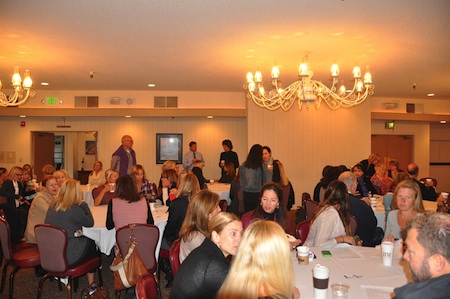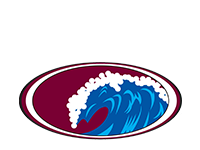By Kate Rogers, Special to the Independent
 Specific strategies to combat teen substance abuse were discussed by local psychologist Jerry Weichman at the Laguna Beach Parent Teacher Association’s parent education forum last Wednesday, Nov. 29, at the Aliso Creek Inn.
Specific strategies to combat teen substance abuse were discussed by local psychologist Jerry Weichman at the Laguna Beach Parent Teacher Association’s parent education forum last Wednesday, Nov. 29, at the Aliso Creek Inn.
The vast majority of today’s teens are navigating a world where everyone else seems to be living the life while they have the nagging feeling that “there is something really wrong with them,” said Weichman, author of a teen life guide, “How To Deal” who maintains a practice in Newport Beach.
High school operates like a caste system, wherein kids are concerned about personal presentation and managing their social stock, he said. Bullying may increase stress levels, as does the presence of “helicopter” or “tiger” moms. Substance abuse is rampant, he said, and kids often either flip-out or “flip-in” through psychosomatic illness or self-mutilation.
Parents aren’t often prepared for what Weichman calls “The Switch,” when kids no longer want to do their chores and start thinking their parents stink. Parents become intimidated at this stage, and often take the short-term gain by not holding their kids accountable. A key to maintaining self-control as parents is to see the kids for who they are: special needs kids in your home instead of raging teens. Weichman’s advice: be a parent, not a friend.
Weichman recommends parents bring the real world into the home. Be like a cop who stays calm, gives tickets, and moves on. The “ticket” is a clean-sweep of all privileges: cell phones, computer, television, music, going out. Enforce for small increments of time a day; anything longer impedes effectiveness.
Weichman warns against too much dialogue, as kids are good at manipulation. Don’t engage in chatter or respond to complaints of “that’s not fair.”
Suicidal talk, however, is a huge red flag. If your teen talks about suicide, bring them to the local emergency room or to UC Irvine’s adolescent ward in Orange. Once a kid understands this real-world consequence, crying-wolf threats cease.
Behavioral parenting doesn’t yield results right away, he cautioned. Often it gets worse before it gets better. It is important to reinforce on-track behavior, but avoid the temptation to set the bar too low or to praise in an overly hysterical manner. Saying, “thanks for stepping up and being more mature,” is adequate.
Weichman spoke at length on substance abuse and peer pressure beginning between the seventh and ninth grades. Kids constantly hear about weekend use in school and become desensitized to the taboos learned in grade school. Marijuana and alcohol are gateway drugs, and kids often perceive such drug use as raising their social stock, he said. Some high school kids carry around water bottles filled with vodka. Vicodin, oxycodone, and cocaine are next steps, and smoke-able black-tar heroin becomes a more reasonably priced alternative once habits are entrenched, he said. Even cigarettes have become acceptable again.
The risks are huge. Because of the stage of adolescents’ brain development, they run a much higher risk for addiction: 47 percent of 14 year-old users will develop lifetime addiction, versus 24 percent of 17 year-olds, versus nine percent of 20 year-olds. This is because the powerful release of dopamine actually changes brain chemistry. Obviously, the longer exposure can be prevented, the better, he said.
Parents are often unaware their kids are using because they are clever, hiding drug use through changes of clothes, breath-mints, and showering. However, in 14 years of practice, Weichman has never once seen a mother’s intuition to be wrong. Trust your gut.
Weichman recommends getting a lock-box for prescriptions and suggests booby-trapping the medicine cabinet with marbles, as many kids who come over use the bathroom and steal prescription meds, which they can sell for up to $50 a pill.
There is a legal liability in allowing partying in the home. Because some kids can’t moderate their behavior, there must be zero tolerance for drug and alcohol use in the home, he said. Never tell younger kids about your own substance abuse history. They see this as a huge green light. Weichman recommends random drug-testing at the eighth grade level as a rite of passage. If the kid protests, “Don’t you trust me?” answer, “This is how we establish trust.”
As kids reach the 12th grade, Weichman recommends quietly relaxing the random testing. Kids need to begin to internalize their own controls before they are away at college.
A link to a video recording and a more in-depth write-up can be found on the gotocoffeebreak.com website.
Kate Rogers is a Laguna Beach parent.




